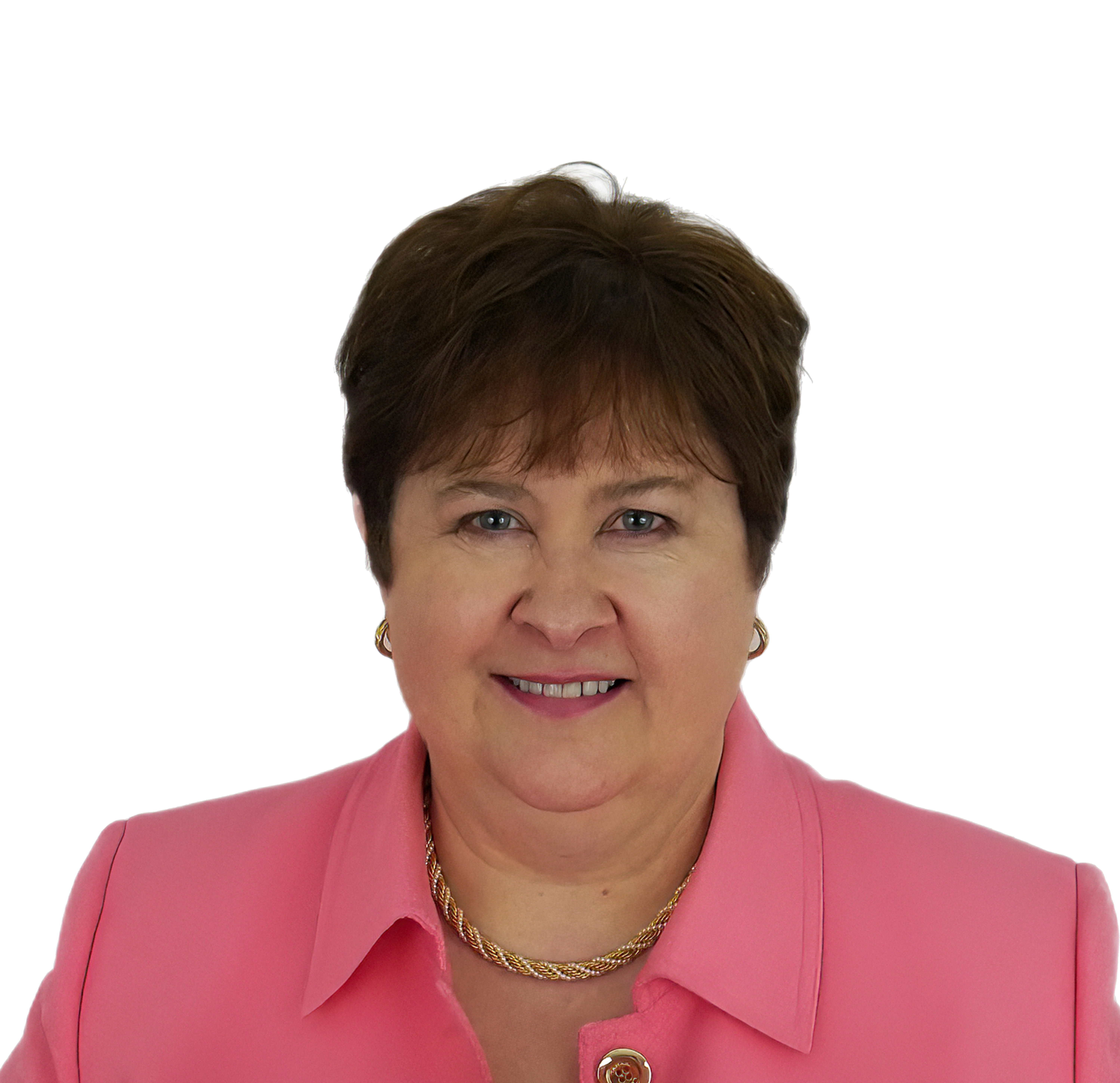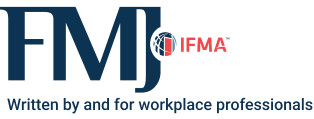Level Up
Elevating FM strategic value

Corporate executives are grappling with the consequences of an increasingly complex and uncertain business landscape. This environment creates significant challenges for strategic planning and decision making at the highest levels of all types of enterprises. The reasons for this uncertainty are multifaceted, including unpredictable government actions, fluctuating market conditions, international complications and overall business stress. This constant change and uncertainty places immense pressure on C-suite executives as they navigate these turbulent waters while making decisions that shape their organizations' futures.
For facility managers, understanding this landscape is crucial. It provides context for the pressures and challenges faced by top executives, allowing FMs to better position themselves to offer valuable insights and solutions that address broader strategic concerns. FMs have a unique opportunity to elevate their role and become invaluable assets to their organizations. By understanding the challenges faced by C-suite executives, FMs can better align their work to impact these strategic business objectives.
To effectively engage with the C-suite and elevate the role of FM, it is crucial to focus on three key components:
-
Thinking more strategically
-
Engaging in more effective communication
-
Becoming a business asset
By mastering these components, FMs will be better equipped to communicate their value, align with executive priorities and contribute more meaningfully to high-level decision-making processes. A deeper alignment will then allow FMs to transform their position from a cost center to a value center within the organization.
Thinking more strategically
To elevate the FM role, shifting from tactical thinking to strategic thinking is essential. FMs must consider how their position intersects with the overall corporate goals of the enterprise. For example:
-
How can FM decisions impact the company's market position?
-
What long-term implications do real estate choices have on business success?
-
How can optimizing facility assets improve the company's financial performance?
FMs are involved in various aspects of the business. Key areas include site services, asset management, security, engineering, capital improvements, regulatory compliance and move coordination. The key is to identify where they can add value relative to the company's overall objectives.
When thinking strategically, facility professionals should consider the context of these functions relative to the whole business. Reflecting on how FM decisions and recommendations advance business objectives and align with overall business strategy is critical for success. For instance, if a company aims to be the premier player in furniture sales or interior design, it is important to assess how this goal impacts the specific operations and activities within the responsibility of FM.
Thinking strategically means continually evaluating evolving market trends and anticipating how they may impact facility needs. This includes assessing changing work patterns, considering the potential value of technological advancements, and understanding how other industry shifts may affect space requirements. By staying on top of evolving trends rather than simply reacting to them, FMs can position themselves as strategic contributors to the organization's overall planning process.
Effective FMs can start by identifying the strategic information they have access to that would be useful to higher-level executives. This requires thinking beyond the tactical day-to-day operations and considering how FM insights can impact the overall business. This involves thinking strategically about the role in the context of the whole business by understanding how FM intersects with the company's broader business strategy.
Another way FMs can provide value is by considering the competitive landscape when making their recommendations. Having a deeper understanding of how competitors are utilizing their facilities and workspace often provides valuable insights, as well as new ideas to consider. Competitive knowledge helps identify opportunities for exploring more innovative facility solutions to support an organization's unique market position. This can also provide ideas for enhanced business approaches.
Engaging in more effective communication
Communicating effectively with the C-suite requires framing insights around their key priorities. The focus should be on how these insights can increase revenue, profit or shareholder (owner) value. When communicating with executives, it is important to remember that it is not about the facility manager – it is about them. Facility insights should align with their priorities and decision-making processes.
When presenting information to the C-suite, it is crucial to remember these executives are under immense pressure. They do not have time to digest complex data. They just need to know what it means. FMs become so much more valuable when they provide strategic analysis and actionable recommendations, not just basic information. Instead of simply stating facts, offering analysis and context alongside the facts is far more effective when dealing with busy executives. For example, when discussing occupancy rates, include ideas for improvement strategies and any cross-departmental collaborations that are being used to address critical issues. This approach will provide greater value.
Effective communication with C-suite executives also involves translating complex facility data into financial terms that resonate with them. This means framing facility investments in terms of their language and focus. Using terms such as return on investment (ROI), cost avoidance or potential for revenue generation provide greater clarity about the true benefit of a proposed idea or investment. When FMs can articulate how their projects contribute to the bottom line or some other critical business goal, they speak the language that executives not only understand but also value.
Developing strong relationships with key stakeholders across departments further enhances the effectiveness of communication efforts. FMs who understand the needs and challenges of the various business units they are responsible for will align their recommendations better with these stakeholders. Building and leveraging cross-functional relationships also provides the facility manager with valuable insights into how facility decisions impact different aspects of the business. Additionally, it builds a more cohesive approach to FM for the enterprise.
Becoming a business asset
To be seen as more than just an overhead cost, FMs must position themselves as indispensable business partners. Leveraging technical knowledge to provide actionable insights, not just raw data, is essential for demonstrating strategic value. Providing concise, relevant information that executives can quickly act upon or use to stimulate their thinking increases an FM’s value and builds deeper relationships with them.
Facility professionals can help executives optimize assets by focusing on efficiency and maximizing asset performance. Linking FM insights to the corporate strategy and considering how local market changes might affect the organization's real estate decisions is advisable. The facility manager’s role is to distill complex data and extensive research into actionable information that can influence their business decisions.
Another unique perspective that FMs bring to the executive table is their knowledge of risk management. Their detailed understanding of physical assets, regulatory requirements and operational vulnerabilities allows them to identify potential risks before they become costly problems. This proactive approach to risk mitigation also demonstrates foresight and business acumen that enhances their strategic value.
FMs are often involved in significant, multimillion-dollar decisions which have a major impact on the organization and its long-term success. Offering clear, strategic recommendations based on a thorough analysis of market conditions, competitive landscapes, long-term trends and emerging technologies can be highly valuable. FM insights can guide executives in making crucial decisions about property investments, renovations or facility overhauls. By aligning these recommendations with the company's strategic goals and target markets, FMs position themselves as a strategic partner rather than just a manager of physical assets.
Sustainability initiatives represent another area where FMs can demonstrate their strategic value. By identifying opportunities to reduce energy consumption, minimize waste and improve resource efficiency, FMs can not only contribute to cost savings but also to helping achieve corporate social responsibility goals. These initiatives enhance both environmental stewardship and operational efficiency.
The path to C-suite influence
These three elements work together to demonstrate FM value beyond day-to-day operations. They showcase how FM can directly contribute to achieving the organization's strategic objectives and improving financial performance. As FMs master these components, they will find themselves increasingly involved in high-level discussions and decision-making processes, solidifying their role as a strategic partner with the executive team.
Successful FMs must also continually expand their business knowledge and skills. They need to stay informed about industry trends, economic factors and emerging technologies that might impact their organization. Ongoing professional development enhances their ability to contribute meaningfully to strategic discussions and reinforces their unique role as a trusted business resource.
By thinking strategically, aligning with C-suite priorities and communicating effectively, FMs can transform their role from a cost center to a valued strategic partner. When providing high-level, actionable insights, they are not just managing facilities – they are also driving business decisions that can reshape the organization's future. Executives require accurate information and a deeper understanding of what the data means so they can make more informed decisions. By delivering this, FMs can position themselves as an indispensable asset to their organization's leadership team.
The elevation of FM from an operational function to a strategic resource represents a significant opportunity for both facility professionals and their organizations. When FMs embrace their potential as influencers in business strategy, as effective communicators and valuable assets, they have the potential to drive substantial improvements in organizational performance, efficiency and competitive positioning. This transformation requires intentional effort and a shift in mindset. The significant long-term rewards for both FMs and their organizations make this approach invaluable.

Jill J. Johnson, MBA, is president and founder of Johnson Consulting Services, a management consulting firm specializing in strategy development. A trusted advisor who has influenced more than US$4 billion in business decisions, Johnson helps organizations evaluate complex marketplace dynamics and develop effective strategic plans at both board and operating levels. She is a two-time Business Hall of Fame inductee. Johnson is also an international award-winning author and sought-after keynote speaker known for her engaging and thought-provoking presentations on business strategy and leadership.
Read more on Leadership & Strategy , Performance & Quality and Communication or related topics Strategy , Career Advancement and Networking
Explore All FMJ Topics








